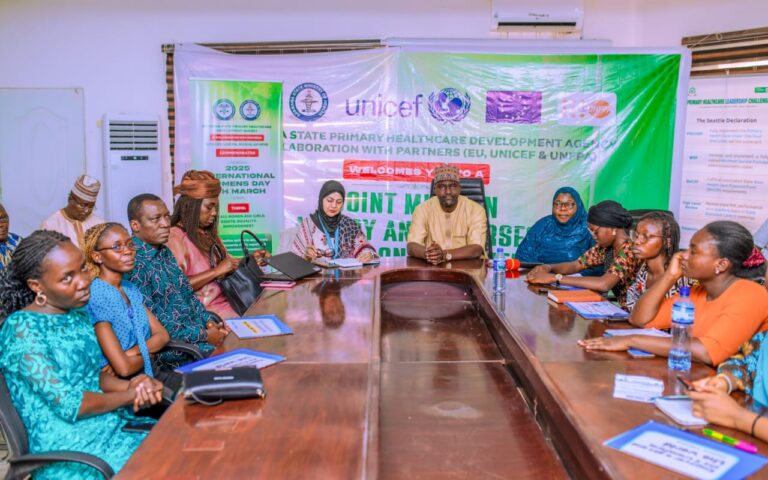By Umayya Abubakar Njidda
In Adamawa State, 75,000 adolescent girls are set to benefit annually from a reproductive and adolescent health initiative supported by the European Union (EU) and the United Nations Children’s Fund (UNICEF).
The initiative, known as the European Union’s Strengthening Access to Reproductive Health (EU-SARAH), aims to reach 2.4 million children under five, 279,995 pregnant and lactating mothers, and 175,000 indirect beneficiaries every year for the next four years.
Speaking at a panel discussion on reproductive and adolescent health, UNICEF’s Chief of Field Office, Bauchi, Dr. Nuzhat Rafique, emphasized that the €40 million program, launched in December 2024, is designed to enhance reproductive health services and strengthen data-driven healthcare delivery in Adamawa, Sokoto, and Kwara States.
Dr. Rafique highlighted the importance of collaboration between adolescent girls and key stakeholders to ensure their concerns are prioritized in advocacy and policymaking. She commended Adamawa State for its investment in healthcare services and urged authorities to sustain these efforts for long-term benefits. She also encouraged young girls to establish advocacy groups and engage policymakers to drive necessary policy changes.
Also speaking, Dr. Victoria Isiramen, a maternal and newborn health specialist from UNICEF Abuja, stressed the need for greater investment in adolescent girls, noting that Nigeria has approximately 60 million adolescent girls who require support to become future change-makers.
The Executive Secretary of the Adamawa State Primary Healthcare Development Agency, Dr. Sulaiman Sa’idu Bashir, revealed that over 1,000 health facilities in the state are providing adolescent-friendly health services, including gender-based violence (GBV) support. He emphasized that empowering adolescent girls with education and healthcare will enable them to stay in school, build careers, and contribute positively to society.
The panel discussion, held as part of activities marking this year’s International Women’s Day, provided young girls with the opportunity to ask questions and interact with experts on reproductive and adolescent health.

